Archive
2020
KubaParis
Light & Free
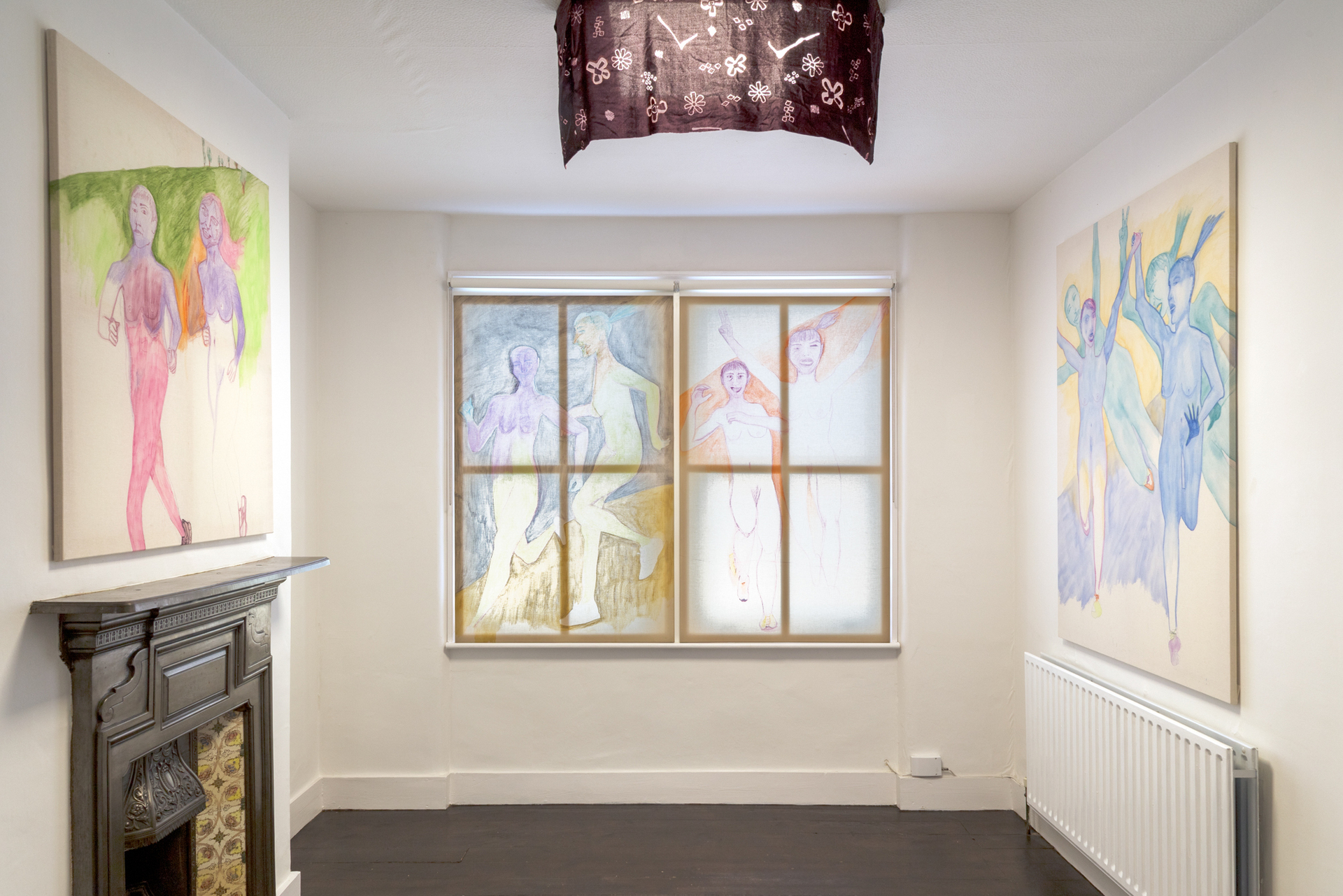
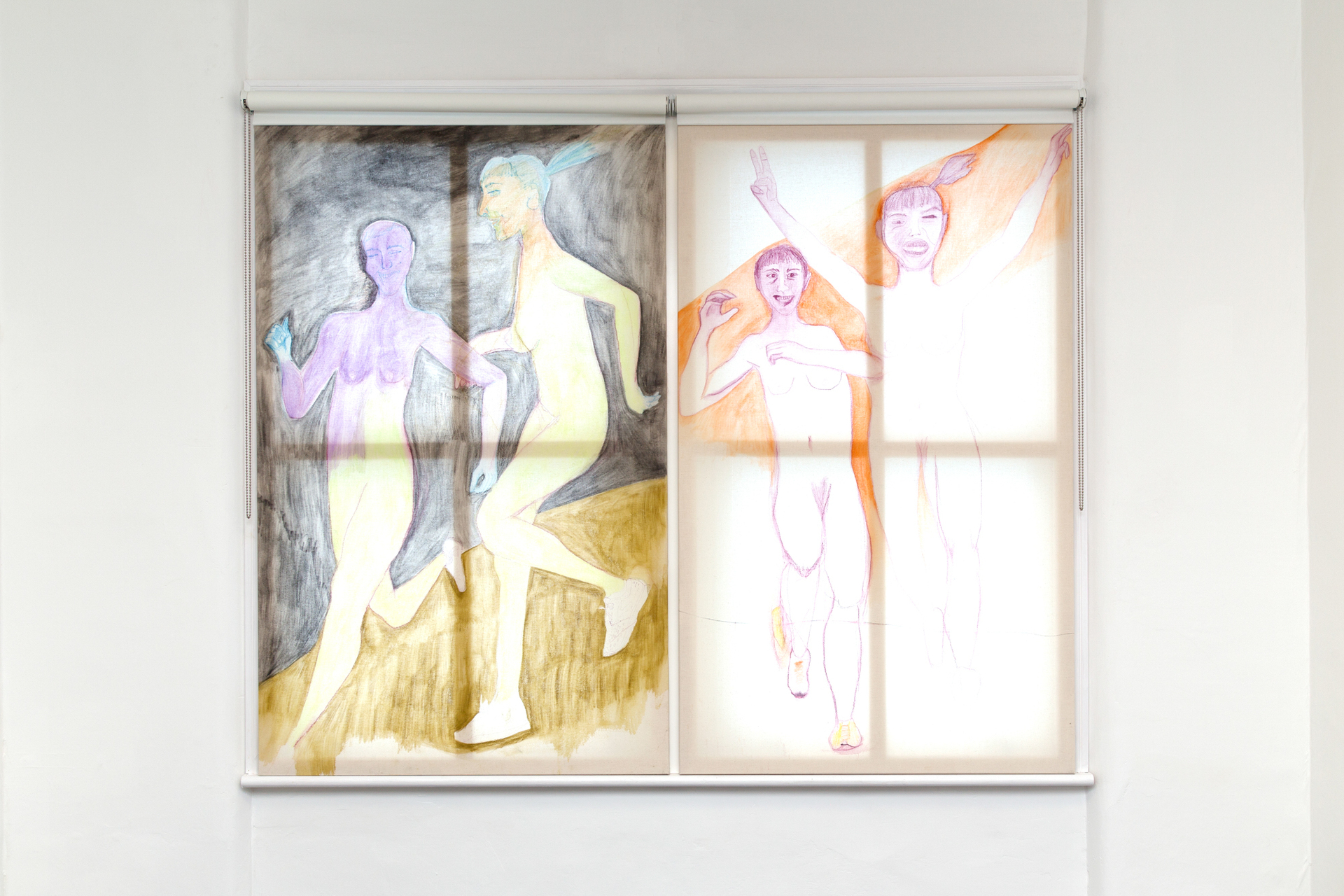
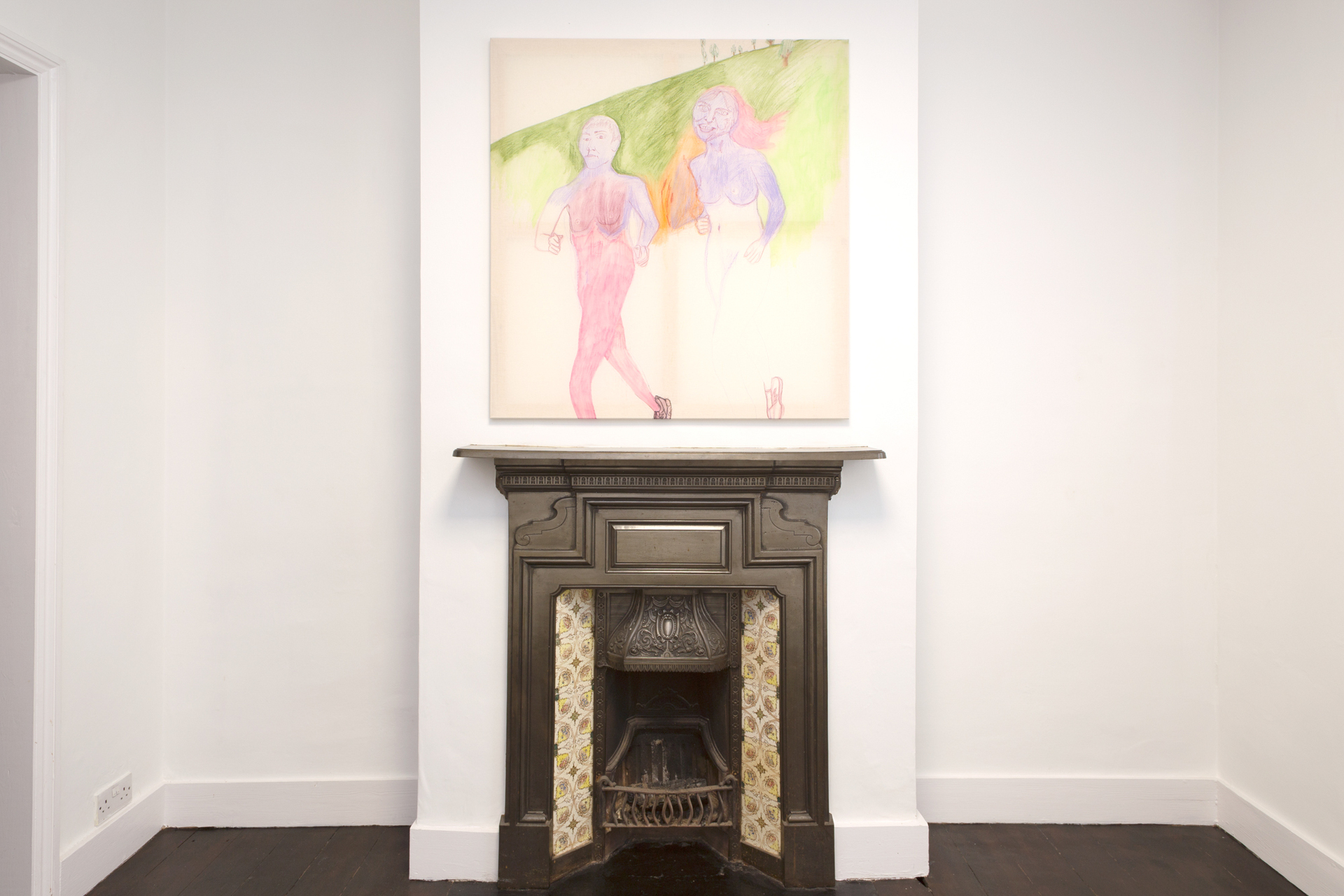
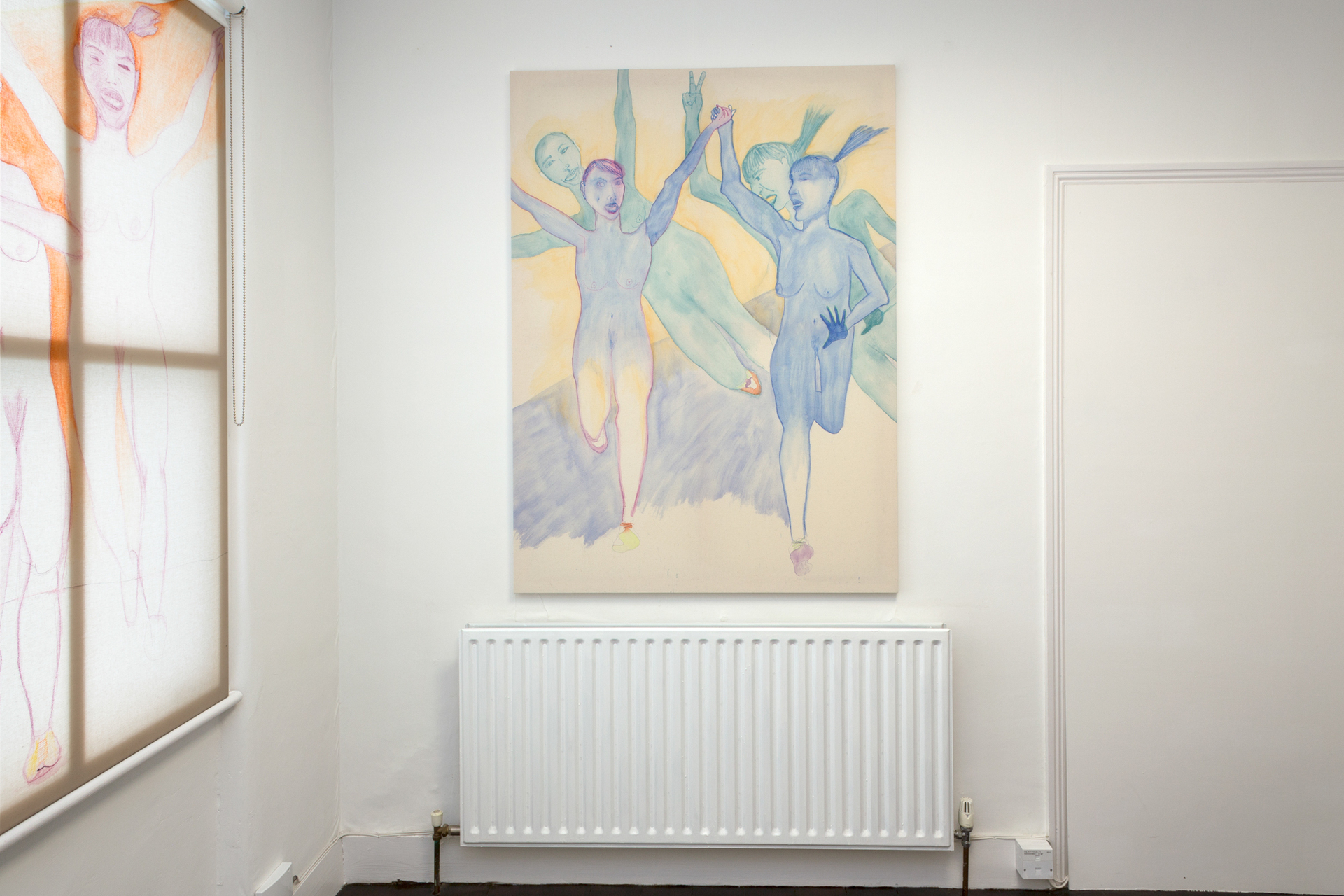
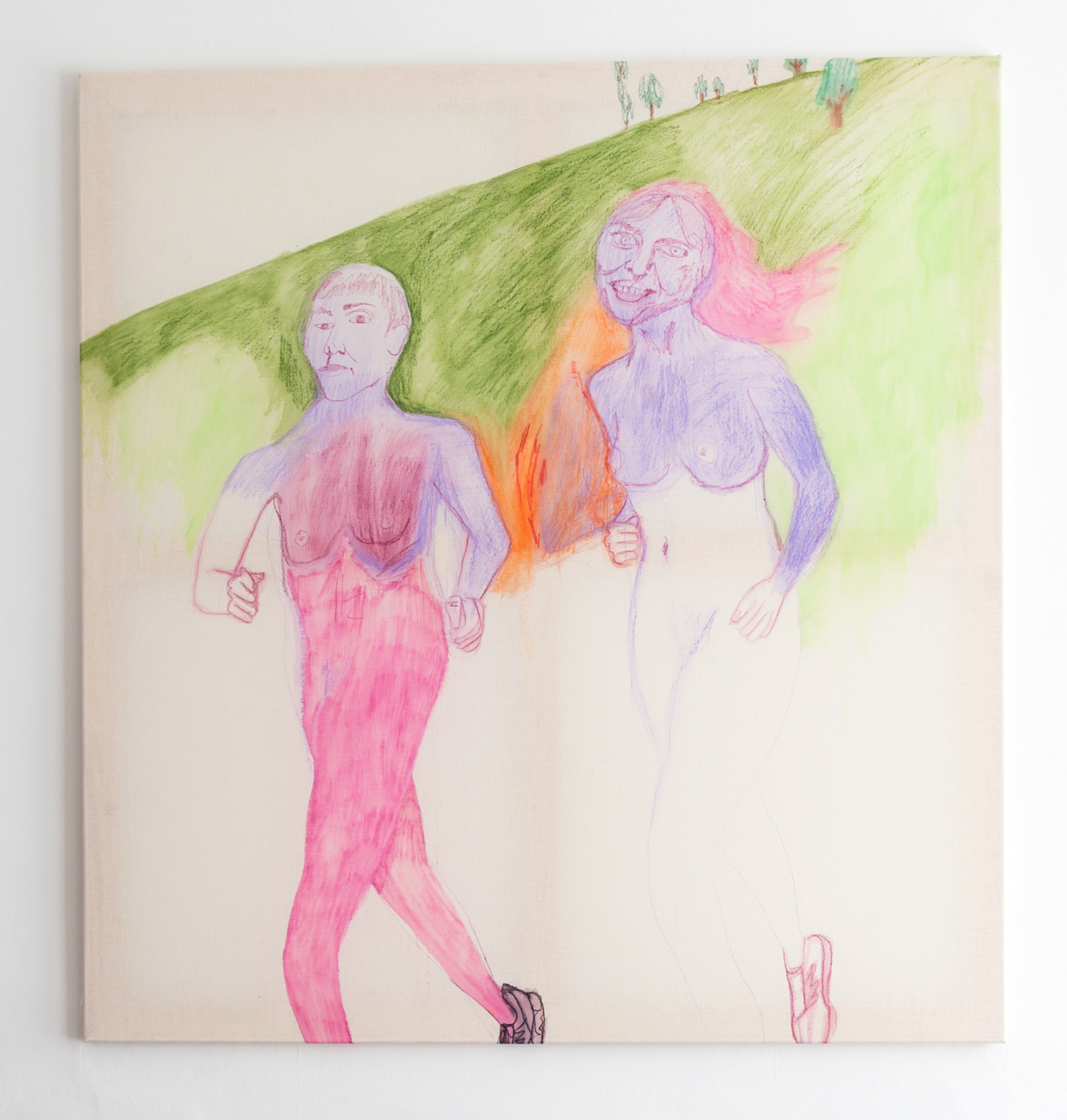
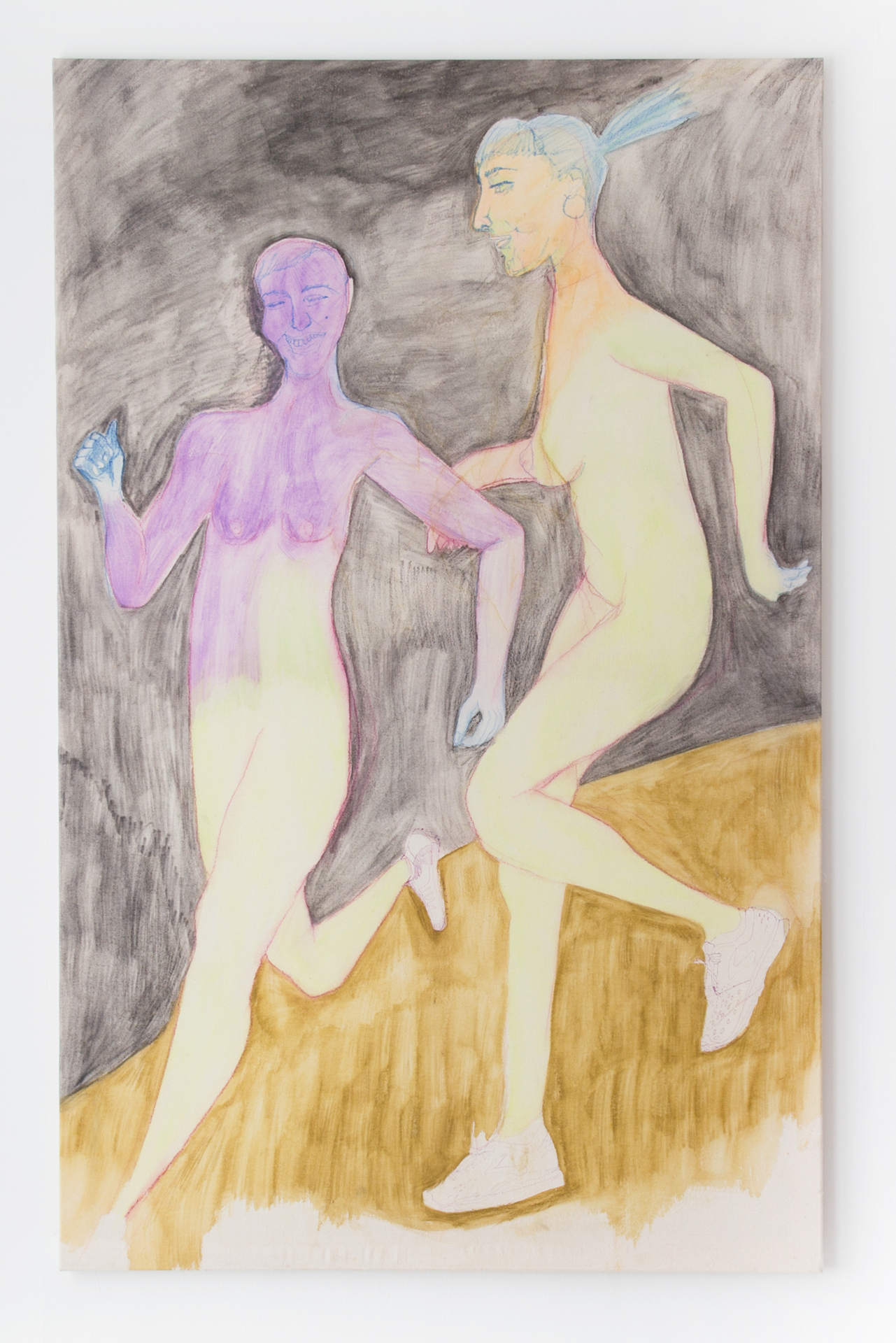
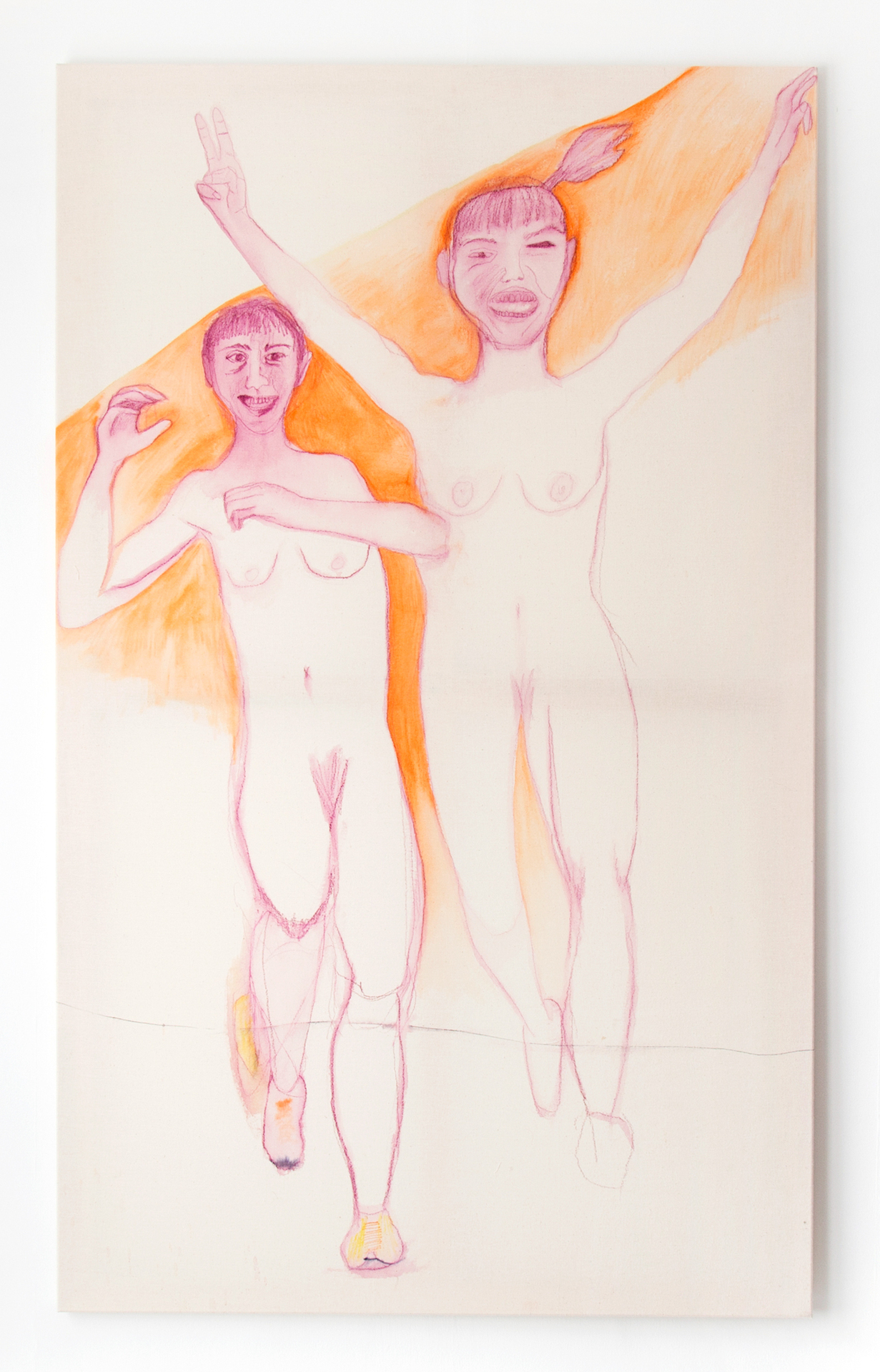
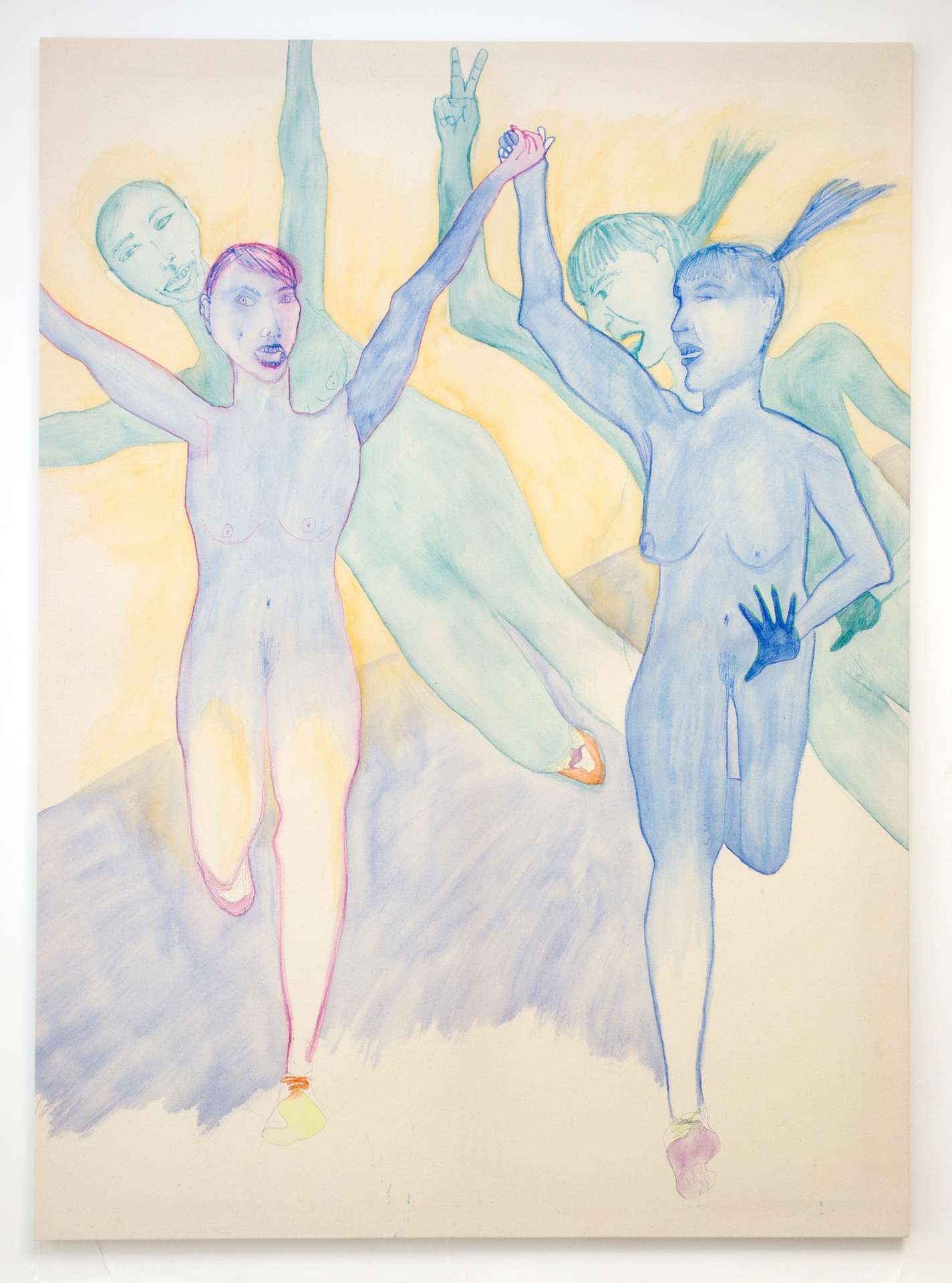
Location
SundyDate
17.06 –18.07.2020Photography
Liam TicknerSubheadline
Kate Mackeson solo exhibition "Light & Free" at Sundy in LondonText
Somewhere in Somerset in the early 2000s, Kate and Lauren, naked, running down a hill. The content of the paintings and their title – “Kate and Lauren” - seems like some kind of hippie-cliché from times long gone although we are not that old, are we? We might start thinking of summers, youth, freedom, maybe innocence, the smell of nature, memories kept close. We could add some music, unfortunately the first song line that comes to my mind is “… can you picture what will be, so limitless and free …”, lyrics from “The End” by The Doors - fitting, but perhaps too old and too negative. The Shamen’s “Move any mountain” might be right. From today’s perspective this track sounds unbelievably utopian and positive, but it is from the early nineties and maybe just reflects my own memories of smoking weed and driving around the countryside. So how about we choose music from the time this event actually took place, The Gorillaz, The Streets or Madonna’s version of Don McLean’s hit-single “American Pie”, which charted high in the UK in 2000, with its somehow mysterious lyrics (the “mysteriousness” lying in the fact they are so bland, making you search for their hidden meaning), although the production and sound design feel quite out-dated. Let’s replace it with something more contemporary, for example “Video Games” or “Summertime Sadness” by Lana del Rey. Now the memories of freedom and youth get mixed up with the right amount of nostalgia and melancholy. The video clip starts playing in our minds eye: the right lighting, nudity but not too explicit, everything a little blurry, quick cuts, some slow-motion and so on.
It seems quite common in writings on literature and art to describe even the most personal feelings and, as in the case of this text, memories as commodified goods, pre-processed and ready to be consumed, in order to point at the state of the late capitalist society we live in. Especially capitalism’s mind-altering effects, i. e. the ways, in which we visualize and articulate our “inner” selves, our impressions, memories and emotions to and for ourselves.
Kate’s paintings could be read as an active, reflected, humorous and contemporary approach to dealing with this condition, repeating single images from that one event again and again. It is obvious that they look different every time, like surfacing memories might feel and literally “look” slightly different depending on moments in time and on the interplay of countless internal and external factors. Kate depicts this scene by painting single images from memory. Regardless if they seem coherent or even just similar, they remind us of a fraction of some video clip split into film-stills.
Repetition here also refers to the process-like character of the event itself – running (and feeling): you start running, feeling young and free, then you get a bit exhausted, a cloud moves in front of the sun, some small and unimportant thought crosses your mind and all of a sudden everything feels different. You suddenly realize what you are doing - running down a hill naked - and all the spontaneity and the feelings of freedom are immediately gone, replaced by feelings of shame or at least awkwardness. Working through these memories and emotions inevitably forces the artist and the viewer into weirdly dialectic circles, paradoxical constructions: the evocation of images of freedom leads sooner rather than later to the insight that there is none at all. Dealing with these thoughts artistically, even only by expressing yourself inappropriately using inadequate means, could be seen as emancipatory and empowering. Attempting to move beyond the realm of commercialised, prefabricated images that surround us everywhere.
The outcome of this attempt, no matter how innovative, idiosyncratic or just average it may be, will only add to the variety of known possible visualizations at hand and the many ways of interpreting any given context. Besides, what you might consider your very own approach in processing your impressions and ideas is – and always will be– based on the images, videos, movies, pop-songs, books and advertisements you have seen, heard or read anyways.
Given the apparent hopelessness of this situation we could despair, but fortunately misery is not the only option. This interplay of perception and production is never going to stop at any rate. We should continue to re-envision this fact for and by ourselves again and again. Sharing our results and insights with other people is fun and, although it might sound a bit hackneyed: working this is the only way to contribute to changing the rules, to keep searching for loopholes and to finally alter the framework in which all of this takes place. For that we will also have to take the risk of failure of just producing another product and merely staying within the capitalist logic.
After all – and this is meant to refer to the pop-song, which came to my mind first – continuing to work not only within these contradictions, but to work the contradictions themselves forces us to find a kind of balance, which in the end might help, to enable us to be running not down that hill, but up, to:
“be running up that road,
be running up that hill,
with no problems
(without having to make a deal with god)".
text by Michael Franz
Michael Franz is an artist/writer based in Berlin.
Michael Franz